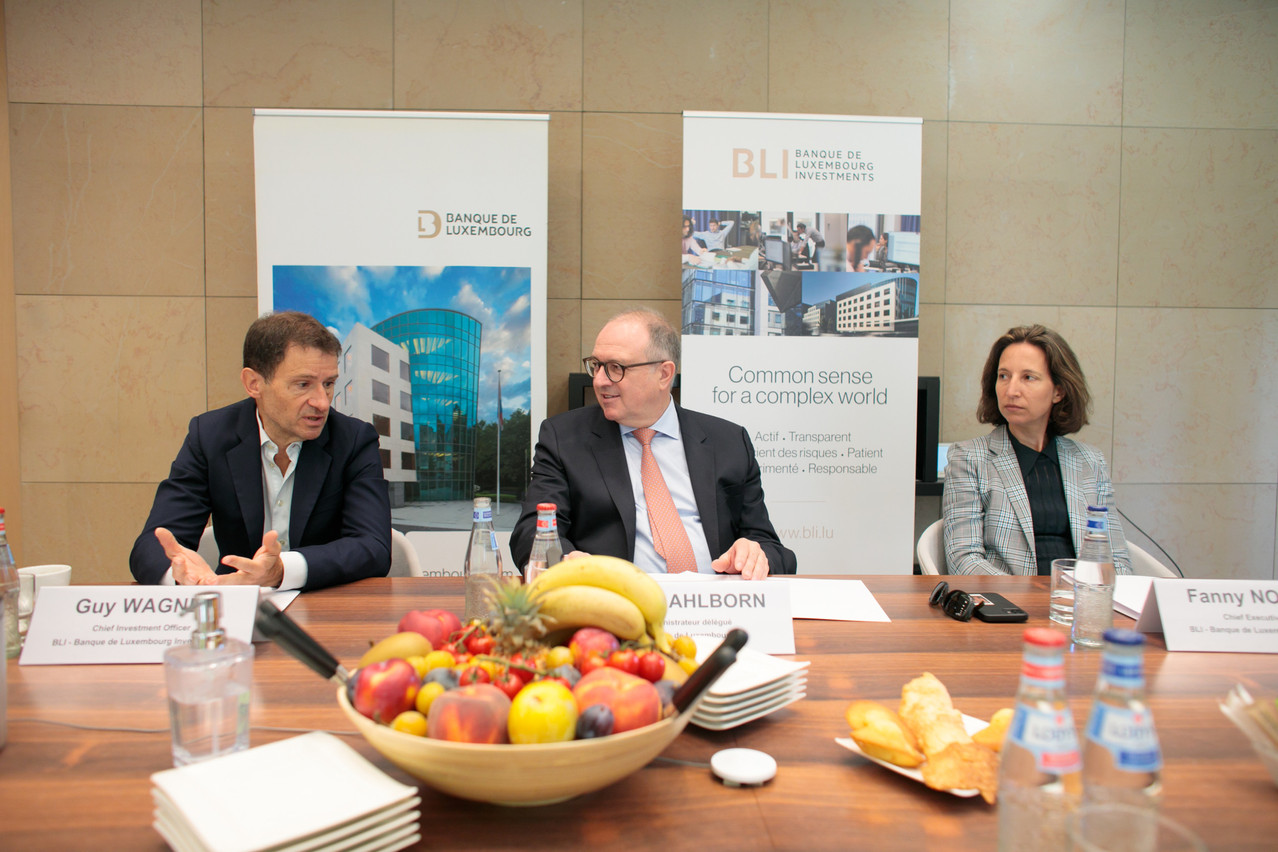Banque de Luxembourg Investments (BLI) announced changes in its executive suite on 1 September. First of all, , who held both the positions of chief economist and managing director, will now fully concentrate on the role of chief investment officer. He will remain on the executive committee.
Fanny Nosetti will succeed Wagner as managing director and CEO. She joined BLI in 2000 as a specialist in multi-management, i.e., management through external funds, for which she was previously responsible. Nosetti will also join the BLI board of directors.
A management company executive spends a lot of time on regulatory issues.
, managing director of Banque de Luxembourg, explained the change in management: “A management company executive spends a lot of time on regulatory issues.” He added: “Fanny Nosetti will be in charge of preparing our funds for the new environmental and social standards.” She will be assisted in this mission by Nico Thill, who joined BLI as deputy CEO to cover governance and control functions. He has several decades of experience at Banque de Luxembourg, where he was responsible for the bank’s custodian services to asset management professionals.
‘Headwinds’ in the markets
BLI, Banque de Luxembourg’s asset management subsidiary, has 64 employees who are only located in Luxembourg. Ahlborn was keen to emphasise the local factor: “We are one of the only managers who carry out the intellectual management of its funds in Luxembourg. It is here that everything is decided, that we do the research. Most of our competitors do it from abroad.”
Wagner, who joined the Banque de Luxembourg group in 1986, has been “the architect of BLI’s management philosophy” since its creation in 2005 under the regulatory impetus that imposed a distinction between management companies and their custodian bank, Ahlborn noted. “Its concepts have been the right ones, given the performance of our fund range.”
The financial markets are likely to become more challenging in the years to come. It is not a luxury to focus entirely on these aspects.
For his part, Wagner has been an observer of the changes in the financial markets at the same time as the developments at BLI, which currently employs around 60 people, compared to just two at its creation. He says that “the financial markets are likely to become more challenging in the years to come”. This explained why “it is not a luxury to focus entirely on these aspects”.
ESG becoming regulatory issue
The markets are currently witnessing a paradigm shift. “The tailwinds are turning into headwinds,” stated Wagner, explaining that this is pushing BLI to refine its investment methodology. The management company is now focusing on identifying firms that have the ability to differentiate themselves from their competitors. Sectors such as airlines and telecoms operators are no longer of interest, as consumers shop around for the lowest price. On the other hand, sectors where companies can dictate prices, such as luxury goods, food consumption and technology, have a greater exposure to profitability margins.
Even though the “easy money” period is over with the European Central Bank raising interest rates, inflation is soaring and the economy is contracting, Ahlborn said that “there is no problem in Luxembourg” for the time being for clients. This clientele is mainly made up of Luxembourg and Belgian families, as well as SMEs with Luxembourg capital.
It is not only the markets that are pushing BLI to initiate new developments. On the regulatory front, the EU’s Sustainable Finance Disclosure Regulation is also bringing about changes. In May, BLI began ESG harmonisation of its funds. Most of its funds will be qualified according to article 8 of the SFDR, i.e., as products screened for environmental and social issues. Only a smaller part of BLI’s funds will be qualified under Article 9, i.e., including products targeting sustainable investments. This reclassification of funds should be completed by the end of the year, pending authorisation by the Luxembourg Financial Sector Supervisory Commission (CSSF). The next challenge will be to ensure the quality of the non-financial data reported by companies, which still contains many grey areas.
Originally published in French by and translated for Delano


